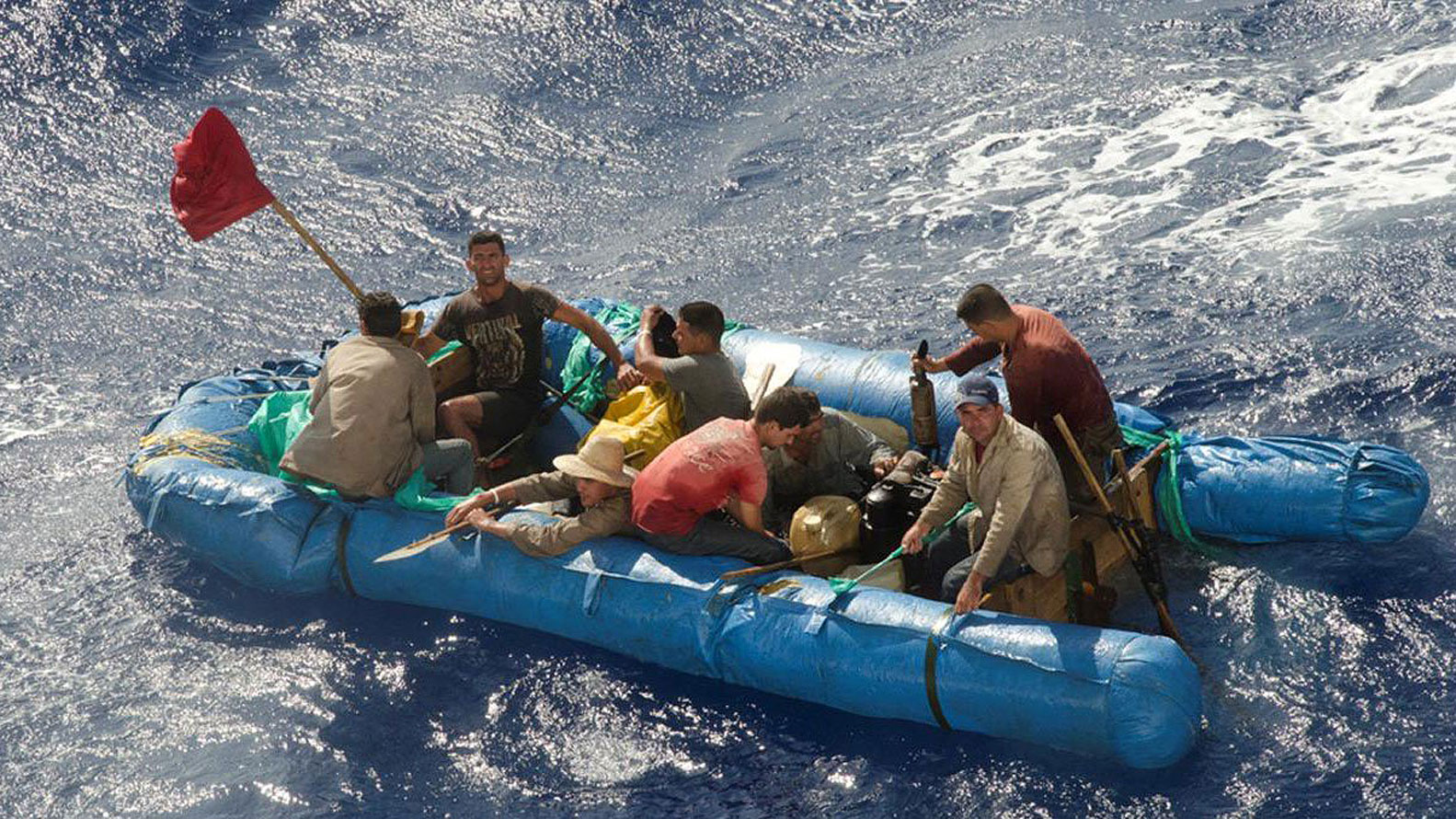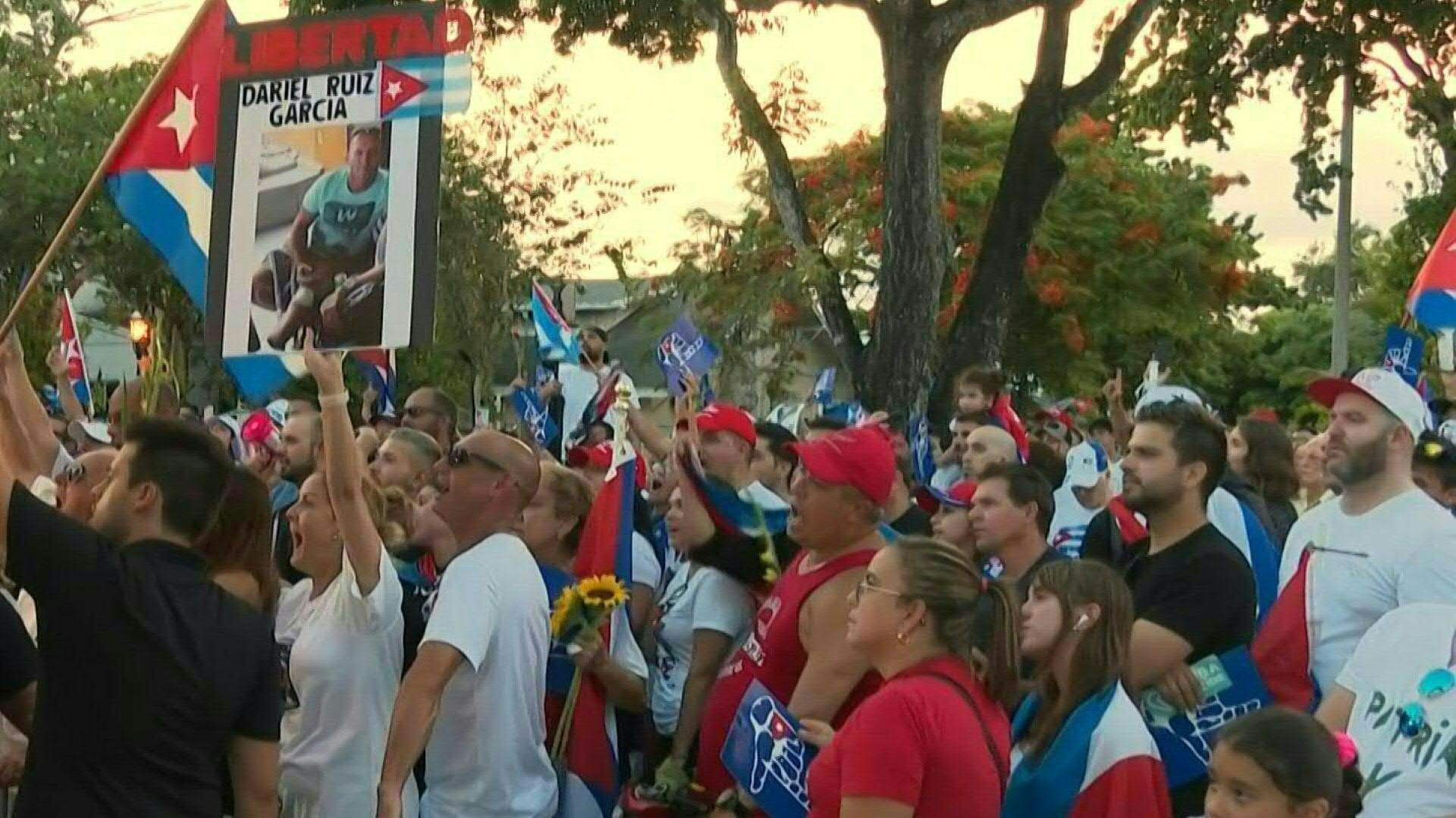:quality(85)//cloudfront-us-east-1.images.arcpublishing.com/infobae/5E6JRHNB3JFIBESQE5KP674SEQ.jpg)

Last August 29, about 30 people tried to travel in three old boats. The Sebemnearby Havana , CubaThe rafters try to reach the shore and descend into the sea FloridaIn AmericaAmid the exodus of migrants the island is experiencing.
According to them, the attempt ended in a protest by the residents who clashed with the police trying to prevent them from removing the rafts. AFP Half a dozen people who were witnesses.
“Whoever wants to go, let him go. We are experiencing great hunger, great need”, a 49-year-old neighbor, who did not want to be named, complained to the news agency.
Although boat migration is illegal, it “happens all over Cuba,” says the woman looking out over the ocean. “This is what they call Terminal Three,” he says ironically, referring to the international station Jose Marti Airport From Havana.
A dispute broke out in broad daylight when police confronted residents who demanded the presence of an authority to allow the rafters to leave.
This resulted in at least four prisoners, injured from beatings and the confiscation of wooden boats, said the 32-year-old housewife, whose husband was arrested and released later that night, she said.
There has been no official response to this incident yet.

In Isabella of ChaguaAnother city visited by rafters in the Central Province clear villa, A boat with six people went missing at sea on August 28, with border security boats, drones and military helicopters on a search mission.
This is another case of rafts with an uncertain destination. At least 61 people have died trying to cross the Florida Straits since October, the report said on August 12. US Coast Guard.
By the summer of 1994, more than 35,000 Cubans had left Miami The island’s largest marine settlement was known as the “Rafter Crisis”. But since then Havana Restored relations with Washington Not so many people left in 2015.
The stimulus for new immigrants was the elimination of visas for Cubans traveling to Nicaragua in November.
Flying into that Central American country and making the overland trip to the US border is more expensive. $12,000A luxury few Cubans can afford.
According to him US Customs and Border Protection (CBP) is almost a record 179,000 Cubans They irregularly entered North America between October and July, most of them by land.
Another 5,000 were intercepted at sea between October and August Coast GuardHalf of summer, when the weather is favorable for navigation in this region.
The Cuban government says it does not comply 20,000 annual visas Immigration is provided for in agreements with the United States, which reopened its embassy in Havana in May after four years of closure.

Cuba is facing its worst economic crisis in three decades, with food, medicine, fuel and daily power outages as a result of the US embargo and the effects of the pandemic.
All this lightened the atmosphere. Unthinkable before the historic protests of July 11, 2021, protests in provincial cities are becoming more and more widespread.
People The SebemAn irregular migrant for 20 years, he says he is irritated by the harsh conditions he lives in and the authorities’ indifference.
“Boats have come to see the problem, they have come to see what is needed and what is needed,” a witness said angrily.
(With information from AFP)
Continue reading:

“Introvert. Thinker. Problem solver. Evil beer specialist. Prone to fits of apathy. Social media expert. Award-winning food fanatic.”





More Stories
Two influencers drown after refusing to wear life jackets: “ruining selfies”
Uruguay 2024 election results: who won and when is the second round | Waiting to know whether there will be a runoff or not
Uruguay: Lacalle Pou leaves with his figure on the slopes | The Marcet and Asteziano scandals hit the right-wing ruler